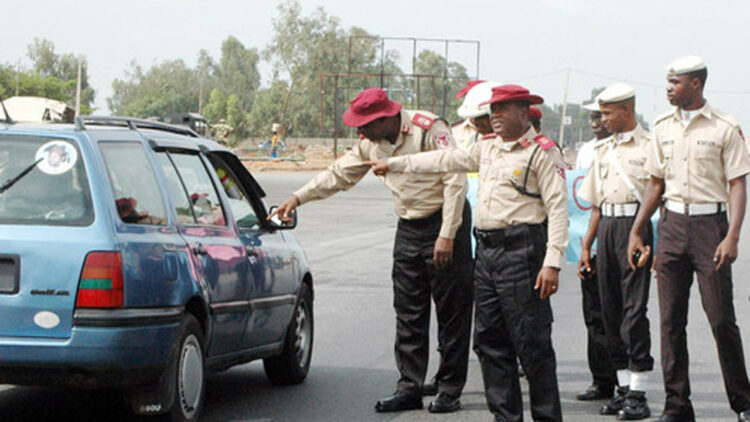As most Nigerians battle economic hardship, leading to low disposable income, no fewer than nine million motorists drive their vehicles without valid insurance papers on Nigerian roads, LEADERSHIP can exclusively reveal.
This is even as some motorists nationwide are now reducing their vehicle insurance coverage as economic hardship bites harder.
However, low motor insurance subscriptions have been an age-long concern despite increased third-party motor insurance enforcement by the police, which started on February 1, 2025, across the country.
Though some uninsured motorists were apprehended and penalised at the initial stage of this enforcement, months later, the efforts seem to have slowed down, as motorists continue to violate road use laws, which include insurance, unabated.
Data from the Federal Road Safety Corps (FRSC) and the Nigerian Insurers Association (NIA) reveals that over 12 million vehicles are plying the country’s roads, and with nine million uninsured, there are a paltry 3.2 million motorists with valid insurance cover.
Also, data from the Nigerian Insurers Association (NIA), released on Tuesday, revealed that, as of June 2025, only 3.289 million motorists had active insurance policies registered through the Nigerian Insurance Industry Database (NIID) and the Nigerian Insurance Industry Portal (NIIP).
The June 2025 data was about 81,000 more than the 3.208 million motorists with valid insurance papers as of June 2024. Further breakdown of the data shows that, of the 3.289 million active policies, 3.167 million were registered through NIID, while 122,565 were registered through NIIP as of June this year.
However, of the 3.208 million vehicles with valid insurance papers as of June 2025, 3.203 million policies were registered through NIID, while 4,943 were registered through NIIP.
To this end, the LEADERSHIP investigation shows that some of these nine million uninsured vehicles parade fake motor insurance papers, while some did not have any insurance cover, and a few who had genuine insurance papers before failed to renew when their previous Motor insurance cover expired.
The FRSC Act demands that any automobile on Nigerian roads have at least a third-party motor insurance policy or comprehensive insurance coverage for about one per cent of its value.
Third-party Vehicle Insurance has a fixed price of N15,000, which was increased from N5,000 in 2023 to account for inflation and the increasing cost of vehicle spare parts.
Investigation revealed that most drivers go for fake insurance because it is cheap and to avoid the wrath of law enforcement agents. They have little or no knowledge of the benefits of buying original insurance cover. Other uninsured motorists, it was learnt, prefer to bribe law enforcement agents in case they meet them on the roads.
Meanwhile, some motorists are reducing their vehicle insurance coverage, especially with inflation hitting double digits, low disposable income, and high cost of living. Nigerians have been cutting down on their expenses, including insurance budgets, in the last few years.
Investigation revealed that some vehicle owners who were insuring their vehicles comprehensively are no longer doing so, opting instead for hybrid or third-party motor insurance policies, which have cheaper premiums.
This is even as insurance companies have now developed a new motor policy known as a hybrid for those who cannot afford comprehensive coverage.
A hybrid motor insurance policy, which has an annual premium between N25,000 and N30,000, combines the features of comprehensive and third-party motor insurance policies. In this case, the vehicle’s owner has access to coverage of about N200 000, unlike the third-party policy, which is not beneficial to the carrier.
Recall that the premium for comprehensive coverage is usually 5 to 10 per cent of a vehicle’s valuation, while third-party coverage costs N15,000.
Although the industry recorded over N1.5 trillion in gross premium income in its 2024 financial year, some suggest that this should have been more had the status quo remained.
Similarly, the LEADERSHIP investigation revealed that the car-pooling method, which is now effective in formal setups and families, had made some sales from their fleet of cars, previously comprehensively insured, thereby leading to revenue loss from that class of insurance.
Speaking on this development at a forum in Lagos, the chairman of the NIA, Kunle Ahmed, urged uninsured Nigerians, including motorists, to secure their assets and lives through the instrumentality of Insurance as the benefits far outweigh the premium paid.
He disclosed that a third-party motor insurance policy has a N3 million claims attachment should a mishap happen to a third-party vehicle through one’s fault. He said that instead of repairing these accidented vehicles from one’s pocket, insurance companies would pick up the bill and pay.
He frowned on motorists’ low insurance adoption and urged Nigerians to take vehicle insurance seriously, especially at this time when there are increasing cases of road accidents across the country.
Ahmed, who is also the managing director/CEO of AXA Mansard Insurance Plc, however, disclosed that, while some who were previously on comprehensive policies switched to hybrid or third-party policies as a result of economic hardship, this still does not have a serious effect on companies’ bottom lines. The premium increase, he said, kept operators in business, ensuring that risks were adequately priced.
Similarly, the managing director/CEO, Universal Insurance Plc, Dr. Jeff Duru, confirmed a drop in volume of comprehensive insurance policy, stating that those who weren’t insuring comprehensively went for the hybrid products.
He assured that insurance operators will continue to pay genuine claims and evolve products as the market demands. The Hybrid motor insurance policy, he stated, is one of those innovations that was a response to policyholder demand. He assured that his underwriting firm and other insurers are ever ready to pay genuine claims to policyholders who suffer mishaps on their insured assets and lives.
He assured motorists that the operators would continue to pay genuine claims within 24 to 48 hours after every document had been submitted, urging the remaining nine million vehicle owners to insure their vehicles.











